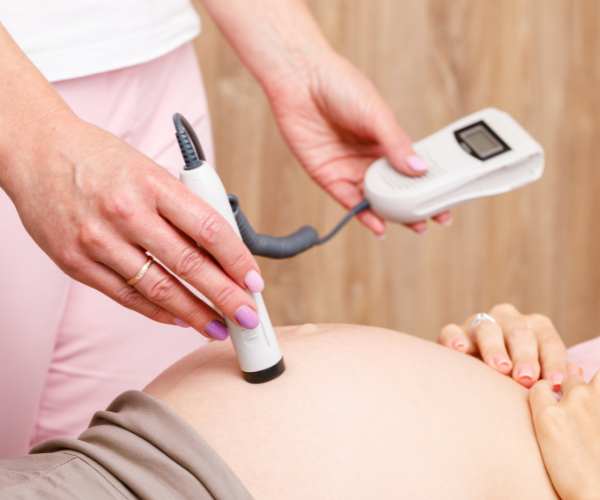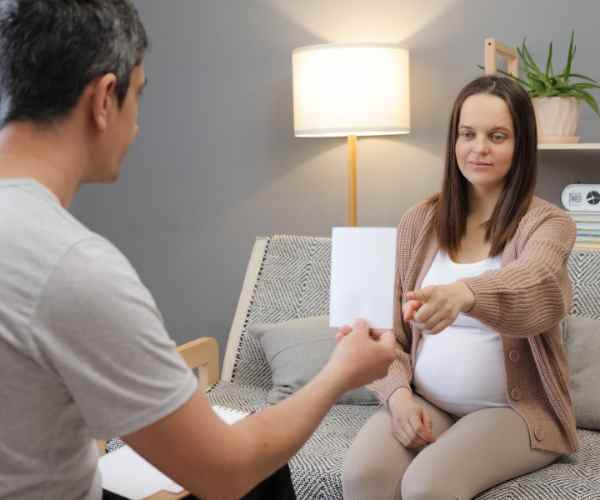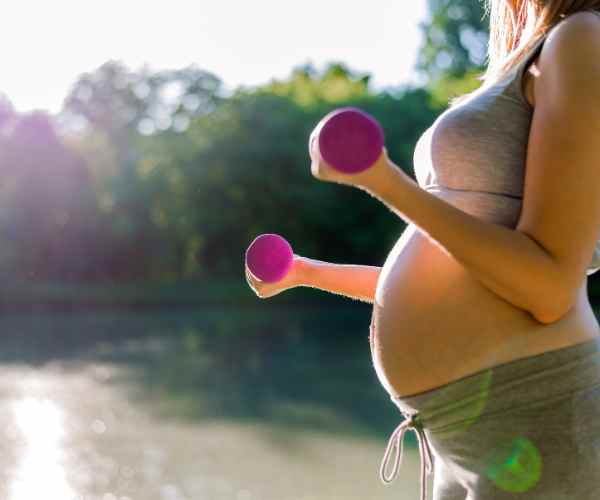Stages of fetal development describe a process that starts from conception up to the three phases of pregnancy. Every period of three months of pregnancy has its own features and stages of development, both of the child and the woman. It is crucial for the expecting mothers and their doctors to know these stages to prepare well for the birth of the child.
Knowing what happens in a given trimester will assist in preparing for what is to come and ensure that proper healthcare is being taken. A study conducted in the Journal of Obstetrics and Gynecology found that mothers who understand the pregnancy stages are more satisfied and have less anxiety during labor and delivery. This reveals that 60% of expectant mothers have higher confidence when they are able to know the physical growth of their baby during the pregnancy.

What Pregnant Women Experience in Each Trimester
First Trimester (Weeks 1–12)
This is the stage where the fertilized egg is placed in the lining of the uterus, which may cause symptoms of early pregnancy like vomiting and dizziness. The most delicate process of formation of organs in the embryo starts at this time.
Second Trimester (Weeks 13-26)
Also known as the “golden period,” most pregnant people experience a decrease in morning sickness and an increase in energy. This trimester is the final one, and in this period, the fetus grows comprehensively, and the baby’s organs become more and more independent.
Third Trimester (Weeks 27-Birth)
The last stage is the birth preparation. The fetus develops fast, and the mother may experience a lot of discomfort because of the baby’s size and its movement. These are the days of mood swings as everyone anticipates the time of delivery.
What Will This Post Cover?
In this guide, you will learn about the major milestones that take place in your baby as you progress through these three trimesters. We will also discuss some vital statistics, myths, and ideas about the role of mental wellness, emotional health, and spiritual well-being during pregnancy. According to a study done by the American Psychological Association, a woman who has a healthy mind is likely to have a healthy baby because a stress-free environment is good for the baby’s growth.
Pregnancy Trimesters: What to Expect in Each Stage?
First Trimester (Weeks 1-12)
What Changes Happen in the First Trimester?
The first month of pregnancy is characterized by the formation of a structure called the blastocyst from a fertilized egg. This amazing process starts right in the first week of embryonic development. The blastocyst then embeds itself into the uterine wall and initiates a process of development during which the embryo begins to take shape. At the 10th week of development, the formation of vital organs begins, and the embryonic period starts. This phase is important because this is when some essential structures are developed in the fetus, such as the central nervous system, the spinal cord, and other basic systems that are needed for the baby’s growth.
The American Pregnancy Association notes that in this trimester, about half of all pregnant people get morning sickness, which is due to hormonal changes in the body. It is also worth mentioning that by the end of the first trimester, the embryo is now considered a fetus and is about 3 inches in length and weighs around one ounce.
Personal Experience:
During this period, I recall always feeling tired, which was a clear sign of changes occurring in my body. This tiredness is usually the result of the body’s efforts to support the formation of new life, and increased blood flow, as well as hormonal changes, may cause this.
Second Trimester (Weeks 13-26)
What Are the Things That Happen in the Second Trimester to the Fetus?
The second trimester is also considered the period of development when the fetus grows at a tremendous rate, often increasing in size two times during these weeks. The heart is beating harder, and the formation of new blood vessels increases blood flow all around the body. Importantly, in weeks 16 to 20, most pregnant women feel the baby’s first movements. These movements are not only physical; they also establish a certain bond between the mother and her baby. Research has indicated that the sensation of fetal movements improves maternal positive mood and promotes maternal-infant attachment.
In this stage of development, the fetus is more definite in its formation and can be seen to have parts of the face, arms, and legs, as well as such important organs as the heart and lungs. By the end of the second trimester, a baby is about 30 centimeters in length and weighs 0.45 – 0.9 kilograms. The Mayo Clinic conducted a study which indicated that about 90 percent of women said that during this stage, they felt happy and excited as they began to develop a bond with the unborn child.
Personal Experience:
For myself, feeling those little movements was a wonderful reminder that a life was developing within me. The first time I felt a kick, I was really excited; it was a way to know that I was really pregnant and that there was a life growing inside me.
Third Trimester (Weeks 27-Birth)
What Alterations Take Place in the Third Trimester?
The third trimester is also known as the third month of pregnancy and onwards; the main concern is the fetus’s readiness for birth. This is a period of growth and development of the baby because the placenta provides all the nourishment it requires. Amniotic fluid protects the fetus and enables it to move around. The baby maintains the growth of fat stores that are vital in thermoregulation after birth.
Just before labor, changes in mental and emotional states are noticeable for most women who are expecting. The tension brought about by the expectation of delivery and the discomfort caused by the baby’s size can mostly lead to mood swings. This stage, especially, it is important to have favorable support systems in place. Based on a study conducted by the World Health Organization, emotional support at this stage may greatly decrease anxiety and improve the mental health of the mother.
Personal Experience
In my third trimester, I had to take some time to meditate in order to keep my emotions in check. This practice allowed me to stay centered when I was having to change and prepare as my due date drew near, and I was able to accept the physical and emotional shifts that were taking place. Research has indicated that engaging in mindfulness activities during pregnancy can cause a decrease in stress and increase the birth satisfaction.
Some of the Most Frequently Asked Questions about Stages of Fetal Development
What Happens in Each Trimester and What Should I Prepare for?
There are three periods of pregnancy, and each period is characterized by different changes for the mother and the baby.
First Trimester (Weeks 1–12)
The first symptoms of pregnancy are likely to include fatigue, nausea, and mood swings. According to the National Institute of Health, 70-80 percent of people with pregnancies will have some degree of morning sickness during the first trimester. Major organs of the baby, such as the heart, brain, and spinal cord, also start to develop at the end of the first trimester; hence, this period is very significant in the growth of the baby.
Second Trimester (Weeks 13-26)
Usually, this stage is characterized by the reduction of early signs of pregnancy as the body realigns itself. This may help you physically connect with the baby as you may start feeling the baby’s movement. According to the American College of Obstetricians and Gynecologists, around 90% of women state that they feel better in the second trimester because they no longer suffer from nausea and fatigue and can now feel the baby’s movements.
Third Trimester (Weeks 27-Birth)
There is likely to be physical discomfort as the baby develops and advances, as well as emotional preparation for birth and childbirth. According to a report from the World Health Organization, social support in this trimester can greatly improve maternal mental health and decrease anxiety about childbirth. This is because there are so many things that are going through your mind as you count down the days to the birth of your baby.
What Could Help with Regular Discomforts Like Morning Sickness?
Managing morning sickness can be challenging; yet, several strategies can help alleviate symptoms:
- Dietary Adjustments: Regular and small meal intakes throughout the day help to reduce blood sugar levels and prevent cases of nausea. The Mayo Clinic recommends eating plain foods, such as crackers or toast, because they do not irritate the stomach as much.
- Hydration: It is important to stay hydrated. Non-relieving foods like water or ginger tea may also help to reduce the feeling of nausea. It is estimated that ginger could help alleviate symptoms of morning sickness for half of all pregnant people.
- Rest and Stress Management: Nausea may be worsened by fatigue. It may be useful to ensure that the patient has enough rest and that they consider using other relaxation methods such as controlled breathing or simple stretching exercises like yoga. Research done in the Journal of Perinatal Education showed that mindfulness practices help to relieve stress and enhance the whole experience of pregnancy.
When Should I Worry About Having Problems For The Baby Or For Myself?
It is, therefore, important to be able to identify the warning signs for the benefit of the mother and the fetus.
- Severe abdominal pain or cramping: It could possibly mean complications such as an ectopic pregnancy or even a miscarriage may be happening. The American Pregnancy Association recommends that you should seek the services of your healthcare provider if you have severe pain and/or if the pain is associated with bleeding.
- Persistent Vomiting: Mild nausea during the first trimester of pregnancy is normal, but persistent vomiting and inability to hold food down is a condition known as hyperemesis gravidarum, which needs medical attention. Some research indicates that this condition occurs in 0.5-2% of pregnancies and results in dehydration and weight loss.
- Reduced Fetal Movement: It is during the third trimester that if you experience a decline in the movement of the baby, then it becomes essential to consult the doctor. The literature review shows that reduced fetal movement is one of the earliest signs of adverse events like placental insufficiency.
In What Ways is the Emotional Health of a Woman Important to Fetal Development?
The emotional health of the woman plays a critical role in the health of the woman herself as well as the baby.
Stress during pregnancy has a negative impact on the baby. A research study published in The Journal of Clinical Psychiatry reveals that maternal stress during pregnancy leads to preterm birth and low birth weight newborns.
This paper established that mental resilience exercises, such as mindfulness, yoga, and support groups, can greatly improve emotional health during pregnancy. A number of previous studies have shown that mothers who practice these activities are likely to feel well bonded with their babies and have low levels of stress.
The positive impact of emotional wellbeing on the growth of a fetus can also be realized. A study in the Child Development Journal found that babies born to mothers with low levels of stress and anxiety tend to perform well in their early cognitive tests.






